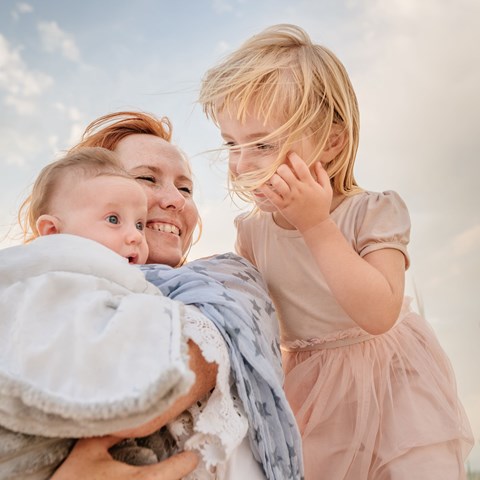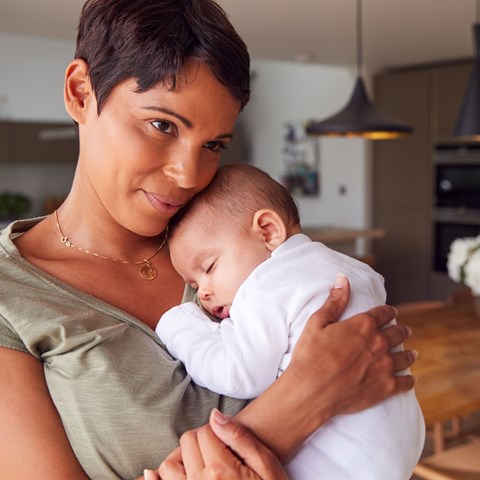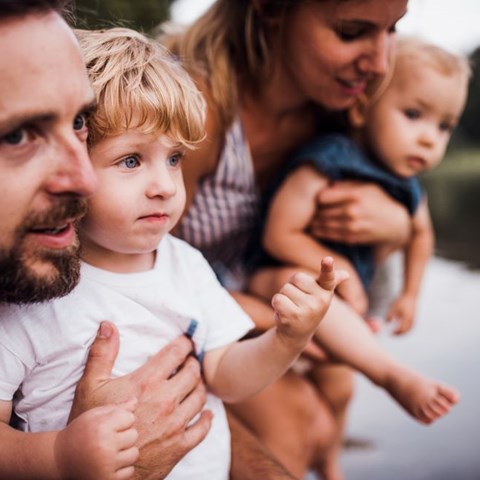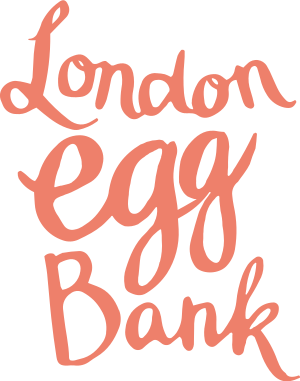Having reached the age of 47, using donor eggs was our only realistic option, but it’s one Zoe and Rick were happy with.
We had many years of heartache and ups and downs on the road to motherhood. At the end of some hard times, I had pretty much given up on the idea of becoming a mother.
Except, I had always kept the idea of egg donation at the back of my mind, having known a woman who went through the process and had two children in her mid-forties. Having reached the age of 47 by the time we could go ahead, this was our only realistic option, but it was one we were happy with.
I’ve never had a hang-up about a child not carrying my own genes, and the fact that the child would be genetically my husband’s meant a lot to us, as we knew we would recognise familiar traits and features. I had also read about epigenetics, and how they are now thought to influence the growing embryo.
“The first decision we had to make was whether to go abroad, which was a cheaper option, or to stay in the UK for our treatment. Our decision to use a UK-based egg bank was largely decided by our wish to tell our child about their origins, and to give them the option of contacting their egg donor when they were old enough to do so."
There wasn’t a huge amount of choice when we were searching with London Egg Bank, but we were lucky to find two strong ‘possibles’ to choose from. We made our decision because of the wonderful statement that the donor wrote about herself, plus the letter she wrote to an unborn child, which gave us an insight into her personality and motives and made me feel close to her.
I’m not a believer in fate, but it did feel like we’d found the perfect person.
Once we had found our donor, the process with London Egg Bank was straightforward. Although the IVF process was pretty arduous and stressful, that’s only to be expected to some extent when so much is at stake, and my age wasn’t part of those concerns at all.
I did feel less anxious about there being any abnormalities with the baby because the egg donor was much younger and so the risk was smaller due to her age. Getting to the point of being pregnant was an emotional journey, but once I was pregnant, it became the same journey as for any woman.
When our daughter finally arrived, I bonded with her completely normally. I didn’t have any fears that I would feel differently because my genes weren’t involved, and I really didn’t.
The overwhelming sense of protectiveness is there from the start - along with all the anxieties and stresses of new parenthood. I’m not saying it’s been easy, but that’s not because my daughter is not genetically mine - it’s just because being a mother is wonderful but also really hard!
We’re planning to tell our daughter about her origins, both because we think it’s her right to know, and also pragmatically, because we think she would inevitably find out at some point, given the prevalence of genetic testing these days and the fact that we haven’t concealed it from family and close friends.
Having said that, I’m not looking forward to introducing the subject as it does feel a bit heartbreaking to have to tell her, but I will take advice on the best way to introduce the concept gradually.
We aren’t doing anything differently with our daughter so far, but we may consider trying to connect with other families when she’s older. I suspect there are so many older mothers out there now who have used donors that it will seem much more normalised when she gets to an age that she understands.
If I could, I’d tell the egg donor that she has done the most wonderful thing imaginable and changed our lives immeasurably for the better. I feel oddly maternal towards her, and hope she finds all the happiness possible.
And if we were in a position to offer advice to other couples about to start the same journey, first and foremost we would say, don’t worry that you won’t love your child. You will.
Want to find out more about using our donor eggs?

Debbie’s Story
"After an intense year of IVF cycles, we had to face the fact that we wouldn't be able to conceive with my eggs."
Barbara’s Story
"I would tell our donor if I could, that she has transformed a world filled with "no's," "abnormal," and "unfortunately" into a world abundant with "yes," "normal," and "heartbeat."
